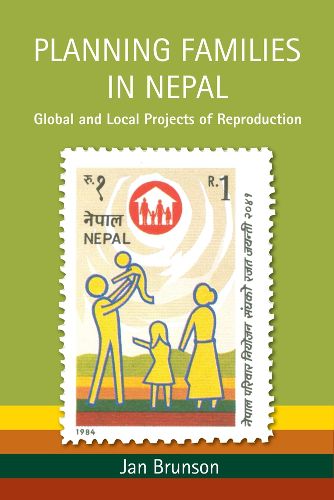Readings Newsletter
Become a Readings Member to make your shopping experience even easier.
Sign in or sign up for free!
You’re not far away from qualifying for FREE standard shipping within Australia
You’ve qualified for FREE standard shipping within Australia
The cart is loading…






Based on almost a decade of research in the Kathmandu Valley, Planning Families in Nepal offers a compelling account of Hindu Nepali women as they face conflicting global and local ideals regarding family planning.
Promoting a two-child norm, global family planning programs have disseminated the slogan,
A small family is a happy family,
throughout the global South. Jan Brunson examines how two generations of Hindu Nepali women negotiate this global message of a two-child family and a more local need to produce a son. Brunson explains that while women did not prefer sons to daughters, they recognized that in the dominant patrilocal family system, their daughters would eventually marry and be lost to other households. As a result, despite recent increases in educational and career opportunities for daughters, mothers still hoped for a son who would bring a daughter-in-law into the family and care for his aging parents. Mothers worried about whether their modern, rebellious sons would fulfill their filial duties, but ultimately those sons demonstrated an enduring commitment to living with their aging parents. In the context of rapid social change related to national politics as well as globalization - a constant influx of new music, clothes, gadgets, and even governments - the sons viewed the multigenerational family as a refuge.
Throughout Planning Families in Nepal, Brunson raises important questions about the notion of
planning
when applied to family formation, arguing that reproduction is better understood as a set of local and global ideals that involve actors with desires and actions with constraints, wrought with delays, stalling, and improvisation.
$9.00 standard shipping within Australia
FREE standard shipping within Australia for orders over $100.00
Express & International shipping calculated at checkout
Based on almost a decade of research in the Kathmandu Valley, Planning Families in Nepal offers a compelling account of Hindu Nepali women as they face conflicting global and local ideals regarding family planning.
Promoting a two-child norm, global family planning programs have disseminated the slogan,
A small family is a happy family,
throughout the global South. Jan Brunson examines how two generations of Hindu Nepali women negotiate this global message of a two-child family and a more local need to produce a son. Brunson explains that while women did not prefer sons to daughters, they recognized that in the dominant patrilocal family system, their daughters would eventually marry and be lost to other households. As a result, despite recent increases in educational and career opportunities for daughters, mothers still hoped for a son who would bring a daughter-in-law into the family and care for his aging parents. Mothers worried about whether their modern, rebellious sons would fulfill their filial duties, but ultimately those sons demonstrated an enduring commitment to living with their aging parents. In the context of rapid social change related to national politics as well as globalization - a constant influx of new music, clothes, gadgets, and even governments - the sons viewed the multigenerational family as a refuge.
Throughout Planning Families in Nepal, Brunson raises important questions about the notion of
planning
when applied to family formation, arguing that reproduction is better understood as a set of local and global ideals that involve actors with desires and actions with constraints, wrought with delays, stalling, and improvisation.